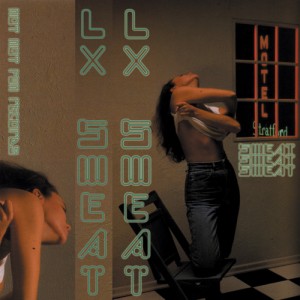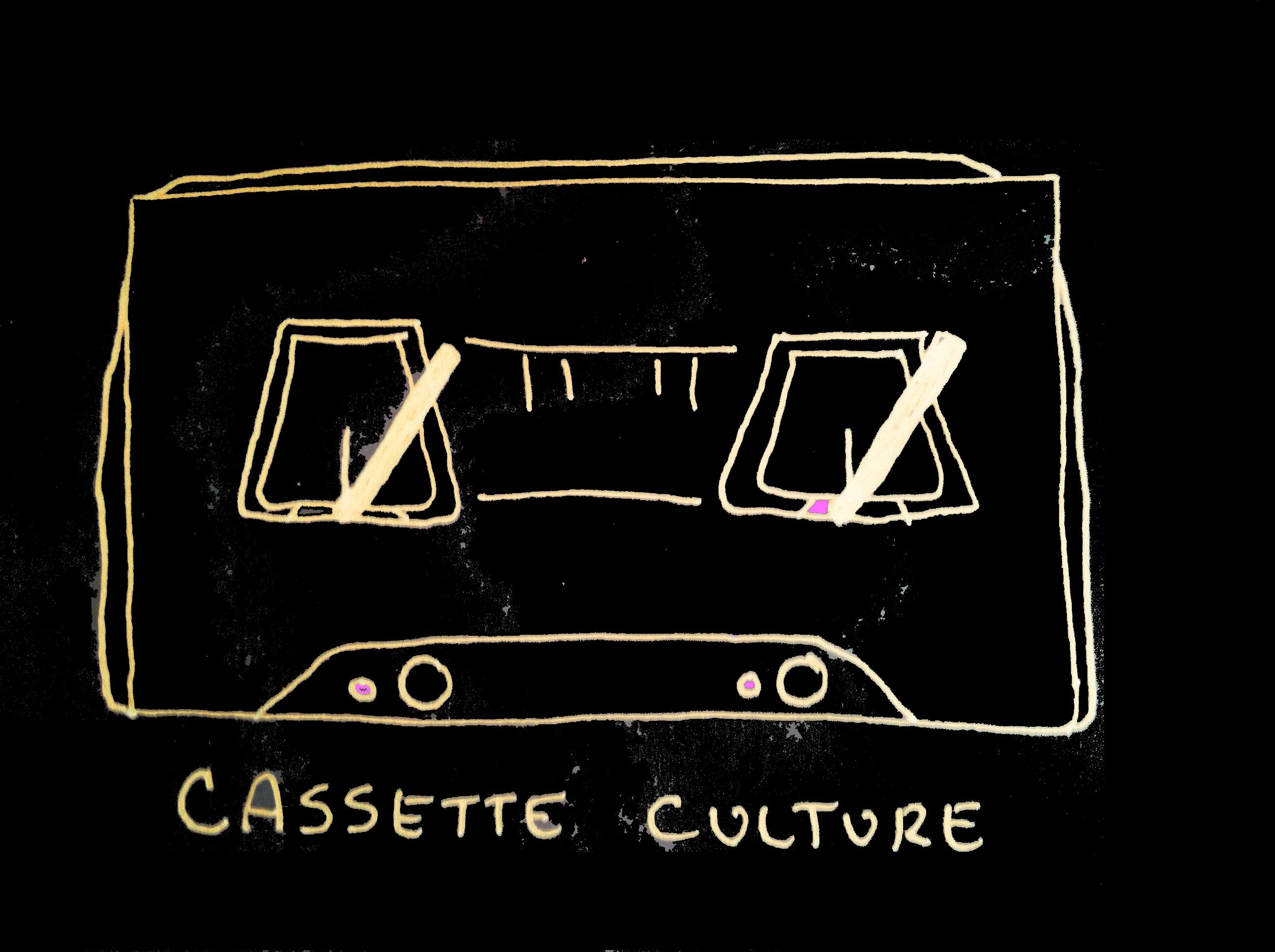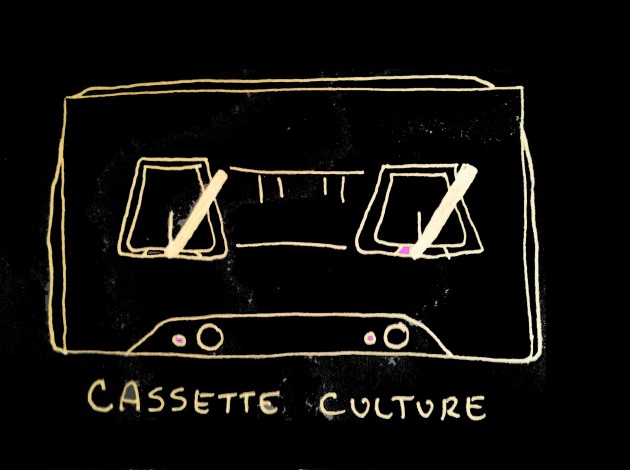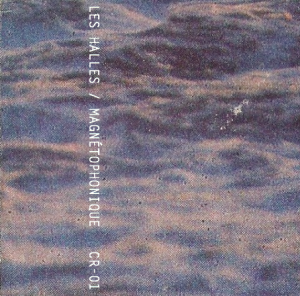Cassette Culture is a quarterly column dedicated to exploring the various aspects and artists that form the burgeoning cassette market. Drawing from bands and labels around the world, this column will attempt to highlight some of the best artists and albums from this growing community. All albums are accompanied by soundcloud/bandcamp/Youtube links when available.
Plastic & Tape
They’re not just plastic and tape. There’s more to cassettes then just small screws and magnetic film. Those two reels represent a simpler (read: analog) way of music distribution. And if the history of music has taught us one immutable truth, it’s that people will always gravitate towards that which makes them nostalgic. Of course, some people just want to look cool. And the cassette industry is chock full of every sort. When you can get tens of thousands of songs on your iPod or download a terabyte of music with relative ease, there will always be a contingent of people who fall back to more traditional options for music. And as much as the CD is beginning to fade away as mp3’s strive to become the dominant musical format, cassettes (and vinyl too, but that’s another conversation) are forging a strong bond with a small group of listeners whose numbers are steadily climbing each year. There is no standard among cassette labels—no set genres or sounds. You’re just as likely to find a metal cassette label as you are to find one that deals exclusively in electronic synth experiments.
But art is a strange attractant and music has always gone hand in hand with people’s ability to express themselves, and for some, a cassette represents a blank canvas which can be altered and designed without much worry of impeded function. Artists may decorate the cassettes themselves or employ various companies which use different materials for the casing as a way of personalizing each individual piece. But this attention to detail would feel pointless if the music wasn’t strong enough to warrant the attention given to its physical medium. If you’re releasing a cassette merely for the aesthetic option it provides, with little regard for the actual music, then the emphasis is solely on style over substance and you’re simply propagating the notion that cassettes are just another throwaway indie fad.
Cassette Culture is my attempt to shed some light on the capability of cassettes as a viable medium for music. They are dismissed as often as they are seriously discussed, which causes many artists who feel a particular need to meld the aural and tangible to be lost in the exchange. Sometimes it may simply be a by-product of a specific label’s proclivities and not necessarily the artist’s preference, though more likely it’s with the artist’s blessing. For this first column, I’m pulling 5 albums from a handful of different labels which were released this year. These albums range in sound from Detroit garage rock to outer space R&B and distorted analog soundscapes. Listed with the albums are links to the respective sites where you can learn more about each artist, as well as find opportunities to purchase their record. Now go grab your walkman and let’s get down to it.

LX Sweat
Sweat Sweat Sweat
(Not Not Fun Records)
Los Angeles- based Not Not Fun Records was founded back in 2006 by husband-and-wife duo Britt and Amanda Brown with the initial sole purpose of releasing music that they themselves made, as well as music by bands they knew in LA. The label has branched out since their initial offerings but still hold true to their analog tape manipulations and psych-indebted noise leanings. They started out as a tape label but began to release albums on vinyl and CD shortly thereafter, though many bands on the label still release music exclusively on cassettes. Somewhere in the middle of the degraded lo-fi synth experiments and psych sludge came LX Sweat and his bag of outer space R&B beats and fractured 80’s synths.
Sweat Sweat Sweat is LX Sweat’s debut EP/mini-LP and combines the downtempo beats common to various sub-genres of house and slathers grimey, distorted R&B beats over every track. These are party jams slowed down and turned backwards–R Kelly filtered through the vacuum of space. And I wouldn’t put this on at any party either, as everyone there is more likely to go into an aural lethargy than push the furniture toward the wall and start dancing. That being said, you can practically feel the heat rising from these tracks, and if you’re not soaked in sweat by the time you hit side B, then there’s something wrong with you. Put on Sweat Sweat Sweat and get dirty.
Pop Zeus
Pop Zeus
(Burger Records)
Burger Records and its corresponding physical store has been a mainstay in Fullerton, CA for the last 5 years, when it opened back in 2007. Founded by Sean Bohrman and Lee Rickard, who were members of southern California band Thee Makeout Party at the time, the label specialized in punk and garage rock releases via high quality cassettes, though the label would eventually broaden its scope and take on CD and vinyl distribution.
Pop Zeus land somewhere between the gritty Detroit rock of MC5 and the power pop of Big Star. Their debut rips through these sacred cows with a fury, unleashing waves of power chords and pop harmonies and makes one hell of a case that great power pop didn’t die with Alex Chilton. Beyond homage and simple mimicry, there lies a beating heart filled with stacks of albums by The Replacements and The Dictators just waiting to land somewhere on your sleeve. Pop Zeus may just be releasing their debut this year, but their music stands firmly in the late 70’s, shoulder to shoulder with fans waiting in line at CBGB’s. And I believe that The Ramones are playing tonight.
Meridians
Meridians
(Cakes and Tapes)
Based out of Aveiro, Portugal, Cakes and Tapes was founded in 2010 and immediately began releasing cassettes from artists all over the world. And though most of the music released on Cakes and Tapes can be downloaded for free, the label makes available custom cassettes for each of their releases. Ranging from singer-songwriters (James Apollo) to cello-based pop experimentalists (Point Reyes), the label sets no firm rules when it comes to genre restrictions.
Julie Napolin and Trevor Healy came together from different backgrounds (Napolin from San Francisco-based indie rock band Citay and Healy from Winston-Salem-by-way-of-Brooklyn Cakes of Light) to form Meridians. On their debut, they meld the kind of quiet electronics and vocal ticks that closely resembles what Julia Holter was so successful at on her latest record. As Meridians, they layer quiet acoustic guitars over subtle electronics with occasional distortion threaded throughout some of the tracks. The way that these songs evoke certain moods and even places can, at times, be uncanny. Napolin’s gentle vocal sway compliments the varied repetition in a way that never feels forced or seems out of place. Meridians is a record for those long walks with no one around–where it’s easy to get lost in the music. It’s up to you whether you want to be found.
Teeel
University Heights
(Purr Tapes)
Going strong since its inception in 2011, Purr Tapes is run by duo Hunter P. Thompson and Krystal Perez from their home in Florida. Through limited edition releases of custom cassettes, Purr Tapes releases artists who span genres, from the cracked beat-driven pop of Patchwork to the electronic knob spinning of Klockhaus. There are no rules, and as such, no lines to be crossed, only wide open spaces for sonic experimentation.
Coming as a bit of an exception, University Heights by Teeel (aka New Jersey-born Jim Smith) is a cassette re-issue of a self-released album from earlier in the year via his own Teeel Music imprint. The technicolor swatches of vibrant synths wrap around the chest thumping beats and unwind around you as Teeel’s voice drifts around the music. It would be easy to name check bands like Chromatics or Peaking Lights when talking about University Heights, and though he’s yet to reach the highs of those bands, this album definitely displays a knowingness in regards to pop construction that suits these songs well. Beneath all the thick dripping beats and syrupy synths lies a pop heart and a need to purge this music from his veins.
Les Halles/Magnetophonique
CR-01
(Carpi Records)
Having only two releases under your belt in a sea of labels which have dozens of releases can be a bit intimidating I would imagine. Founded in May of this year, French cassette label Carpi Records, was a way for two roommates to release music on their own. Calling themselves Les Halles and Magentophonique, they released their first cassette, a split between their two monikers, via a limited run of 28 cassettes. They’ve since distributed an album of ambient music by Memory Pavillion and are currently working on their 3rd and 4th label releases, with an eye toward possible November and December street dates.
Their debut record, as both artists and as a label, otherwise known as Cr-01, is a 17-track excursion into minimal ambient and fractured aural textures. Utilizing minimal beats and various synths mods, Les Halles delves into our collective consciousness and plays around with our memory. These are simplistic, though no less affecting, soundscapes which offer us no answers, only more questions regarding our own ability to perceive our past. And as each track is fairly short, no track ever outstays its welcome. The back half of the split by Magnetophonique feels a bit more developed but no less primal and seemingly attuned to our subconscious. These tracks are more varied, with a wider range of sonic manipulation and instrumentation, but still feel relatively simple. They seem to hit at a basic level, and no defense is able to keep the snaking distortion and wobbling percussion from wrapping itself around your brain and settling in for a cozy nap.
But all the great music in the world doesn’t explain why some labels and artists believe that a cassette is a viable means of music distribution. How much easier would it be to just throw a few mp3’s onto a blank CD and be done with it? I think it comes down to a connection with the artist. The link can be somewhat intangible when you have a bunch of digital files all categorized and tagged on your computer but a physical means (i.e. CD, vinyl, or cassette) can create an odd shared experience with the artist. As Baptiste Bitsch, co-founder of Carpi Records, told me recently, “Maybe our goal is just to link people with music. Cassettes are the best for this, it is personal and close to the listener, the sound is warm.” Not Not Fun Records co-founder Britt Brown agreed: “Personally, I dig collecting them. I also like how indestructible and portable and low-stakes they are. A lot of people consider tapes a retro lark, or an ironic trend, or that they just sound too shitty, or one of a dozen other complaints. To each his own or whatever. I disagree.”
You find similar sentiments when talking to the majority of artists and labels concerning cassette distribution. Co-founder of FL-based Purr Tapes recently told me, “We believe that music on cassette provides a more natural and organic aesthetic–similar to the warmth and texture of old film photography.The analog production allows for more individuality and uniqueness in the music and how it is heard.” There seems to be something in the physicality of holding a cassette case (or cd case or vinyl sleeve for that matter) that seems to provide a tangible connection to your favorite artists. You look down at the cassette and think, “This was made for me. This small object that consists of just plastic and tape was made for me to listen to.” And really, who am I to say that I won’t. I guess it’s about time that I went and dug out my Walkman.






